Alone in a barren landscape, one man stops atop a mountain of rubble to inspect the shocking new reality around him.
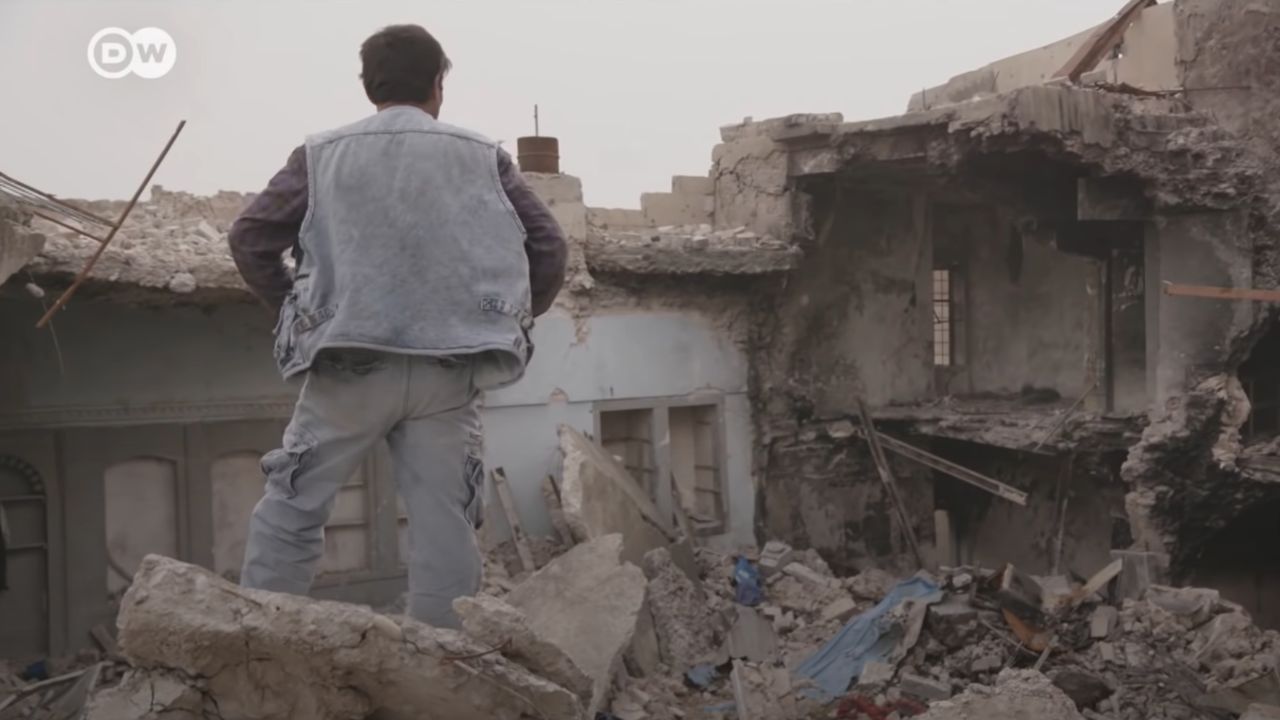
Man inspecting damaged buildings in Mosul, Iraq. Image Source: Mosul After ISIS, DW Documentaries.
He’s just one of the few survivors left in the decimated city of Mosul in Iraq. In 2018, this is the permanent reality for the city’s inhabitants, who have just been freed from the grips of one of the most devastating conflicts in recent history.
From 2014 to 2017, it was occupied by the Islamic State (IS) — under the ruthless rule of terrorist fighters — leading to an estimated 11,000 deaths in the city. Nearly a year after the defeat of the IS, these survivors are still largely left alone in this rubble, without any external aid. One man grieves over these years, recounting:
“We were waiting to be killed. For three years, the suffering was unbearable. All our lives have been one war after another. War against Iran, war against Kuwait… one war after another”
Everywhere around the city, the landscape looks the same. The rubble of buildings lays upon other buildings, all destroyed from years of airstrikes, bombings, and other conflict. Countless possessions lay scattered along the ground, from misshappen clocks to dismantled cars to torn clothes — still adorning the corpses of the deceased that remain strewn amidst the rubble.
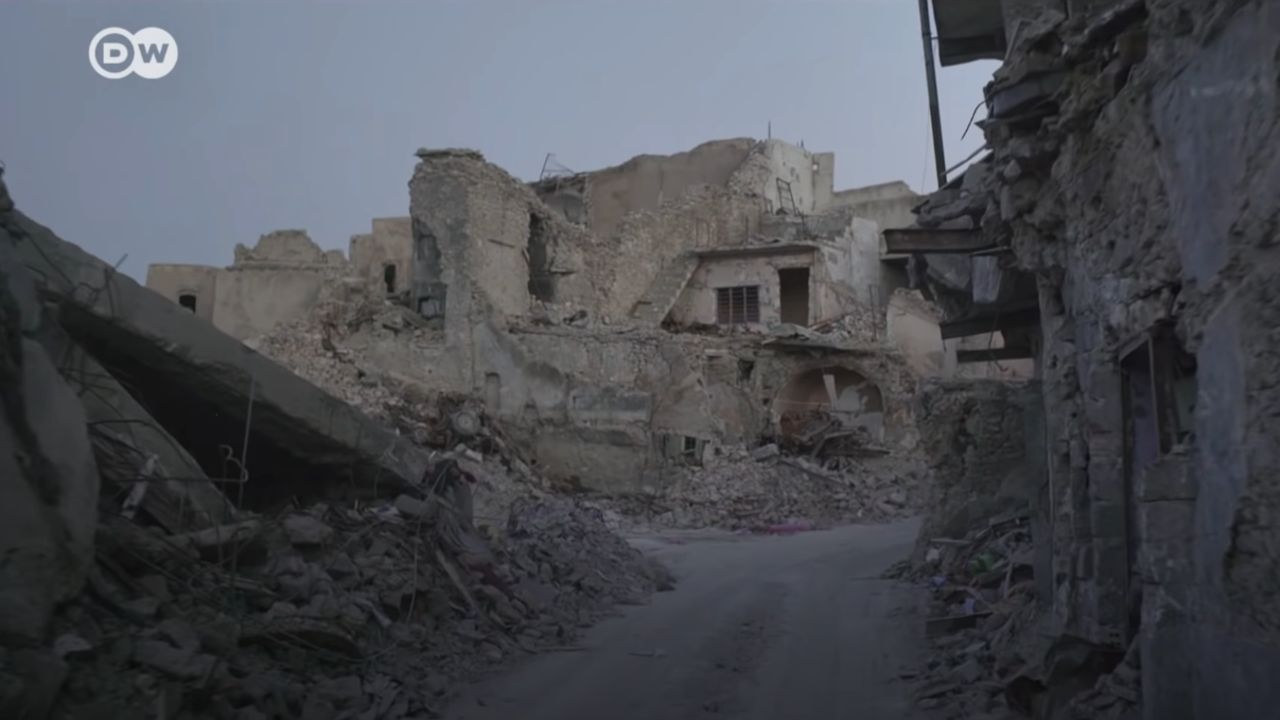
Empty streets and collapsed buildings in Mosul, Iraq. Image Source: Mosul After ISIS, DW Documentaries.
Amidst this desolate landscape, a few survivors remain to recount the stories of their harrowing experiences in the past few years. At the peak of the conflict, there was open rebellion and conflict between the Shiite and Sunni Muslims in the region. A conflict that left disastrous consequences.
One elderly man climbs through rubble in the city, grieving over haunting memories of the past. He stops to hold out the passports of his former family members, narrating:
“All the politicians, the military, the heads of state… when they drop their bombs, do they ever think of the people? This was my wife. These were my two sons. This was my elder daughter. This was my younger one… she was my favourite. Now, they’re all dead. I wish I had died with them.”
Conflict ended in the region in July 2017. Eight months later, the city looks very much the same as the one left in the grips of this atrocious conflict. Every survivor seems to tell a similar story. One of lost sons and daughters. One of lost parents and spouses. One of an entire way of life lost with only the remnants of hollow homes and hearts to show.
The survivor scanning the rubble of Mosul from a destroyed rooftop is scavenging through these homes, searching for corpses of the dead still waiting to be cleaned up. He states he has adjusted to this reality now, where the work — any sort of work — is all that’s left him to distract him from the misery:
“At some point, you start to forget. It’s good that god has given us the gift of forgetting. Every time I come here, it makes me sad. I go out, keep myself busy, help out with the corpses. I can’t stay longer than an hour. If I stay longer, I get depressed.”
As the working men continue on trying to slowly clear the rubble and restore the barren city, the other members of families watch on trying to comprehend this new nightmare that they’ve been haphazardly been dropped into. One young girl, walks amongst broken roads, discussing past events with an elderly man, who perhaps may be her grandfather.
She seems bizarrely used to the bleak reality around her, carrying a sense of composure not expected of any youth — especially not one in the position in life that she is in. She looks squarely in front of her with an indifferent tone as she relives the horrors she had seen:
“One old man looked so terrible: his stomach was sliced open and his guts were spilling out. I couldn’t sleep at night — it looked so horrible.”
Another boy gathers with his family in front of a crumbling wall displaying countless fluttering sheets of paper — each with dozens of names listed on it, recording the missing family-members being sought after by broken families.
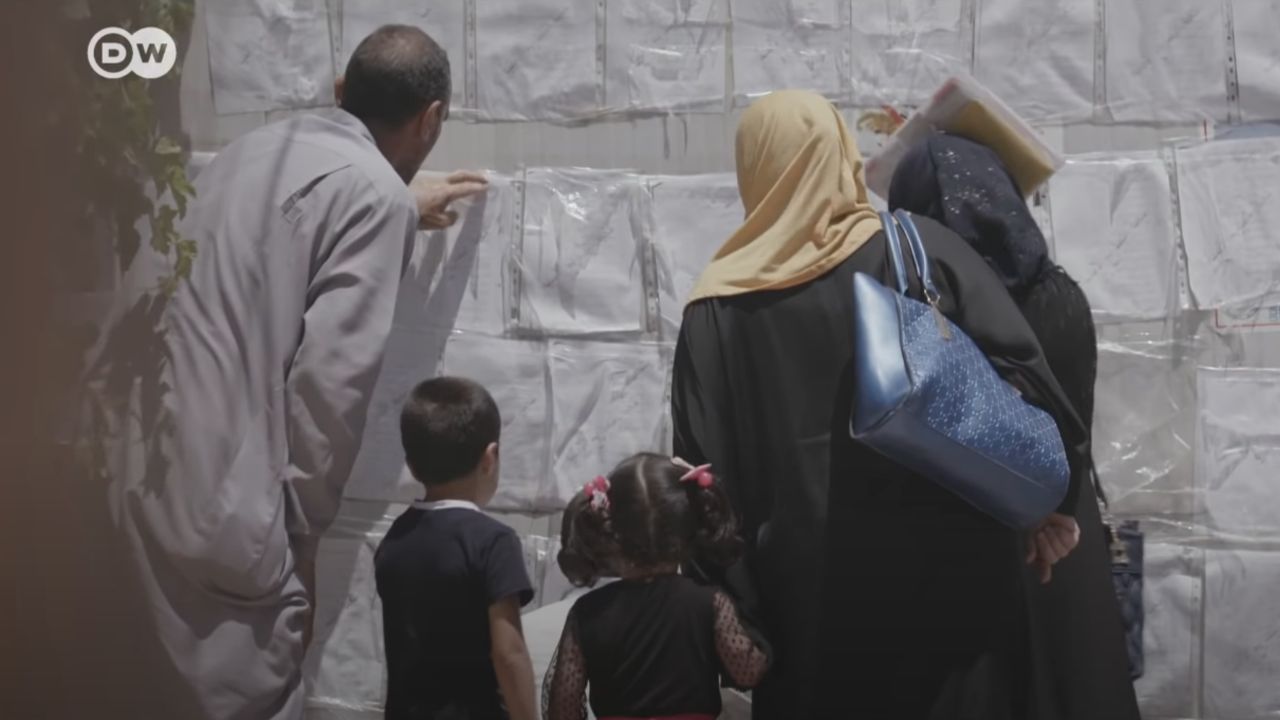
This ramshackle wall serves as the centre for information about the missing and deceased. Image Source: Mosul After ISIS, DW Documentaries.
He describes his fluttering hope to find his lost father, not fully knowing whether his father is alive:
“I’m here because of my father. Members of the IS arrested him on January 31st, 2017… We will file a missing person’s report. If someone knows something, they should contact us. I hope we find him.”
It’s a similar picture for the state of the wandering mothers and wives amidst the crowds. They come back week after week to search for any news of their lost sons and husbands — often if only to find closure in realising they can stop searching for the fallen. One mother sobs as she tells of her family’s continuous losses as the war progressed:
There’s no one left. My parents died, so did my only brother… my husband too. My sons were all I had… My house could burn down and I would live in a tent, if only my children were here with me. That’s my only wish.”
The most prevalent question among these survivors’ minds is not about the fate of their fallen family, however. It is about the foggy future that soon awaits these fractured circles of outcasts. Especially the young among them. As time passes on to the end of 2018, the lives of children consist mainly of scrounging through the rubble to scavenge any pawnable items off of dead corpses.
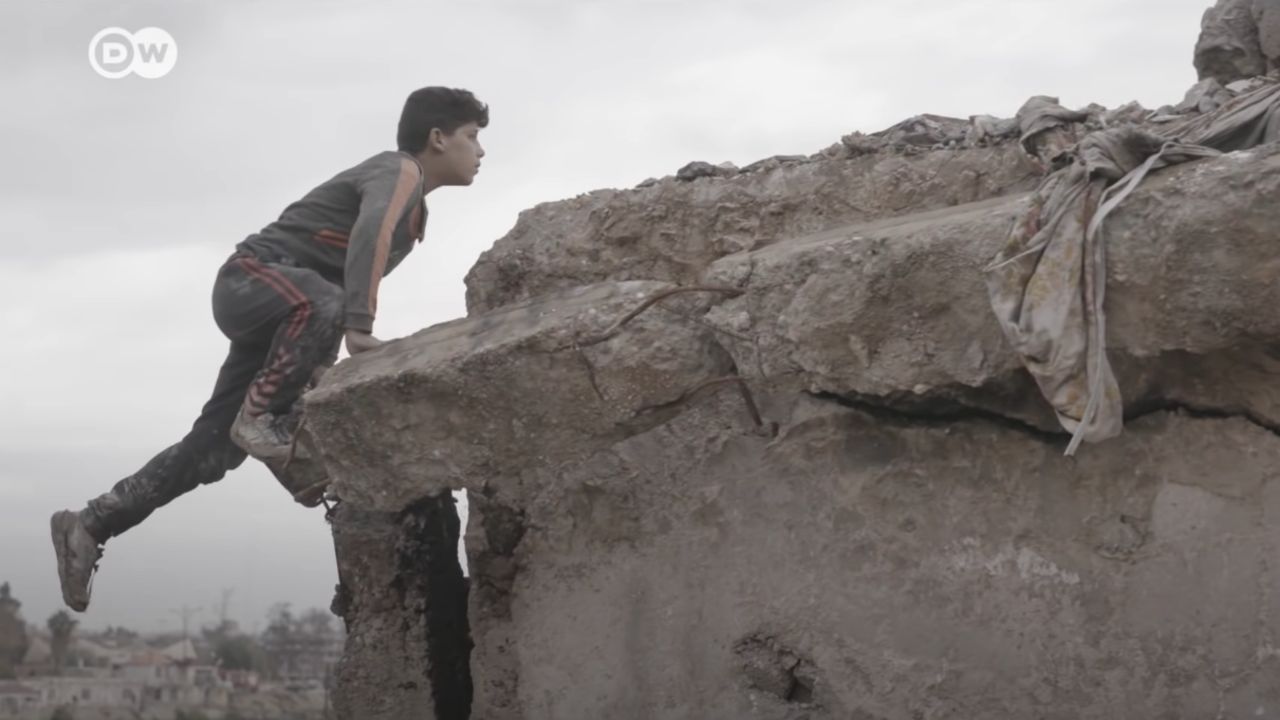
A teenage boy climbs atop a crumbling rooftop. Image Source: Mosul After ISIS, DW Documentaries.
Many of these children are left orphaned, having never learned how to fend for themselves and having no social systems to fall back on for help. Adults watch the foreign sights of children running across a war zone to gather the few resources they can from the corpses no longer in need of them. One man looks on and comments:
“The most important question is this: is anything being done to rebuild people’s lives? No sustained effective longterm measures are being taken to educate to educate or train young people. Or to further their abilities. Or to emancipate women. Nothing is being done. The people of Mosul will continue to suffer.”
In the background of this stark reality for the Iraqi citizens, there is another group of former nationals suffering in the shadows. The family members of former IS soldiers are now blatantly ostracised and rejected by the surviving Iraqi— many of whom had lost their own family due to the invasion of the IS. The tensions of revenge hang heavily in the dusty air.
One elderly woman surreptitiously makes her way through the rubble so as to not draw attention. Her time is now spent with her two orphaned grandchildren in sleeper cells. The mother of a former IS fighter, she describes the threats now facing her remaining family at the hands of the reinstated Iraqi government:
“They scrawled Islamic State on our houses. Even if wiped away, people know who the houses belong to. Our children are not allowed to go to school. All their rights have been taken away from them. They can’t even get identity cards. Even NGOs turn us away… it’s not the children’s fault.”
The woman has increasingly justified fears of this retribution as the government presence in Mosul grows. There are more and more Iraqi troops patrolling the city, searching for hidden IS members yet to be found. The danger is far from over in the region, as isolated extremists still continue to perpetrate terrorist attacks on civilians.

An Iraqi soldier on patrol in Mosul. Image Source: Mosul After ISIS, DW Documentaries.
In addition to the military presence, there are also increased political dynamics at play with the rebuilding of the historic city. Where now lie mountains of rubble, there once stood monuments dating back several centuries. As a result, there is both international and local attention on the region as rebuilding efforts commence.
Representatives from across the world are evaluating the lost heritage sites that must be dug up amidst ancient broken stones as part of initiatives with the United Nations Educational, Scientific and Cultural Organization (UNESCO). Similarly, the United Nations Development Programme(UNDP) is charged with implementing aid to reconstruct thousands of homes, schools, and hospitals to restore vitality to the region.
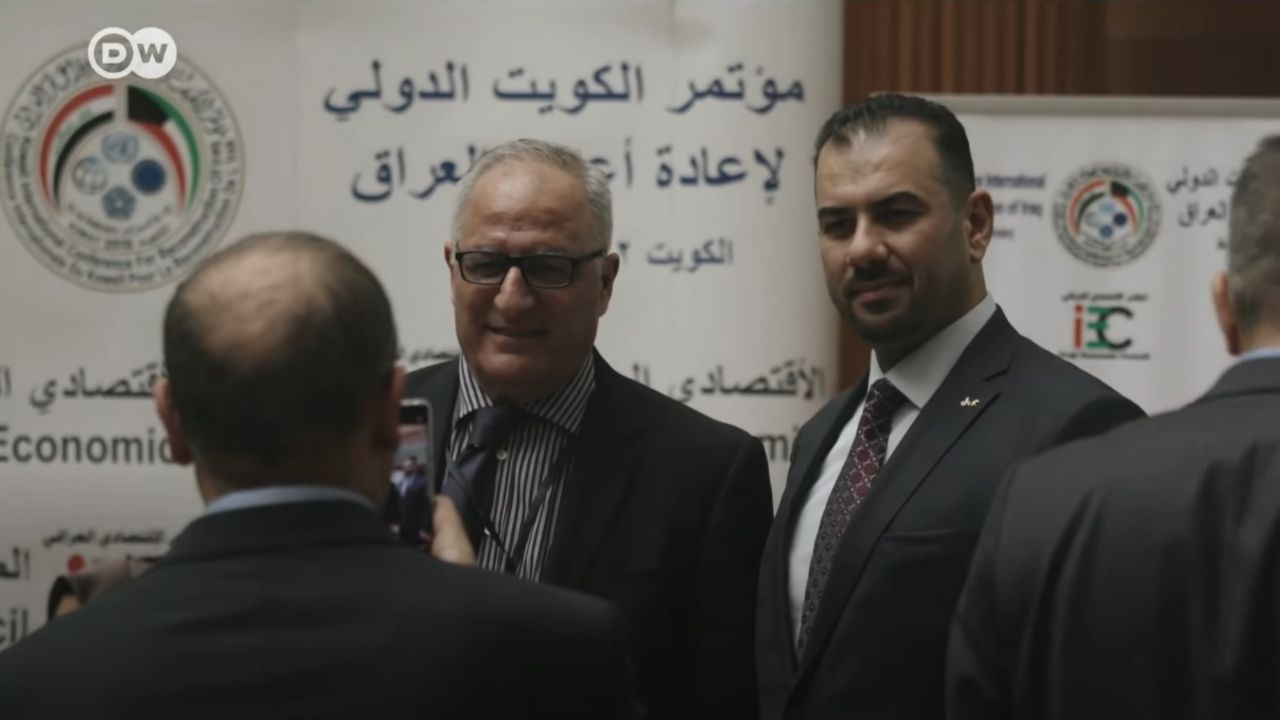
Iraqi leaders gather with international diplomats to secure the stability of Mosul. Image Source: Mosul After ISIS, DW Documentaries.
Millions of euros are being funnelled into Mosul for this purpose. Yet, the region’s relentless record of bribery and corruption still are entrenched in local governance. While cooperation between local and international authorities stalls due to lack of transparency in the allocation of funds, angry hoards of protestors clamour as the people of Mosul are inevitably the ones still left suffering.
One couple walks away from it all to survey the graves of their six children, indistinguishable from the thousands of others extending out as far as the eye can see. As they start sobbing amidst this new world of rubble, they pose their questions in vain to an ominously-silent fate:
“Why don’t we have a right to live? Why has Mosul suffered? I don’t understand… why Mosul?
Across the shores of a vast ocean, in another part of the world, the effects of this conflict continue to ripple outwards. On the shores of Lesvos, Greece, the sunset illuminates the spray of waves crashing on the beaches of the doorway of Europe. Yet, there is little beauty in this seemingly elegant picture.
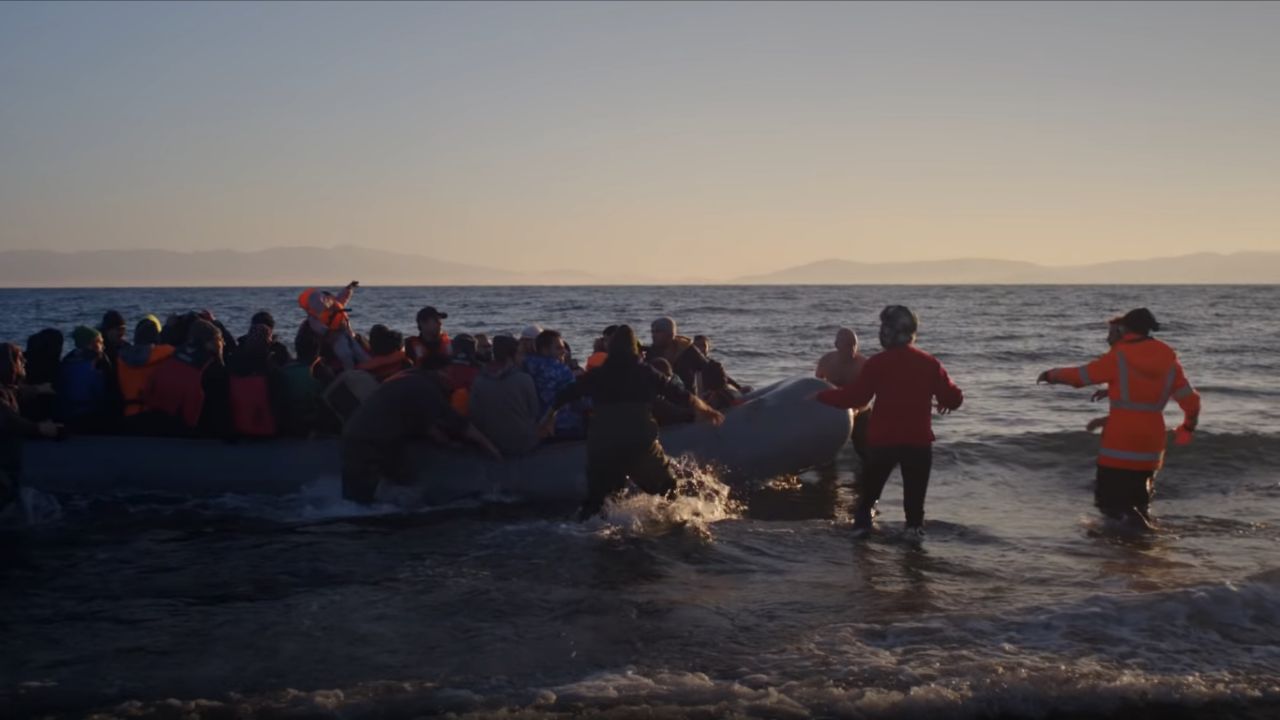
Migrant refugees from Syria land on the island of Lesvos in Greece. Image Source: The Harrowing Personal Stories of Syrian Refugees, in Their Own Words, The Atlantic.
Instead, the sunset reveals an overcrowded raft of desperate people yearning for a better life, escaping the rubble-strewn lands of the middle east in search of a new horizon that brings new hope. Every day, more and more refugees surrender their lives to the unforgiving waves, playing their odds with the cold currents in hopes of a better future.
There are thousands of refugees on this island, just a small part of the 60 million that were displaced in 2015. Yet, the overwhelming number of refugees on Lesvos all share a unity in the challenges they have been through, even as more join their ranks from the sea every day. One young boy describes the connection he feels to other refugees, down to the perilous journeys that brought them to this new land:
“When [the boat] capsized, everyone fell into the water. No one died. The coast guard saved us, they took us here to the island. Five more minutes, and we would have all been dead. We were 6 children, so I was scared for my younger siblings. I feared for them, and for my mother and father.”
Numerous others haven’t been so fortunate. Many refugees in Lesbos know family members that have drowned during this journey. Thus, new arrivals jump joyously off the overladen boats to kiss this newfound land. On the side, however, one man is left wistfully gazing at an old picture on his phone of the brother he left behind:
“Whenever I recall my time in prison, I remember my brother. He was a good man. His crime was helping people. He never used to even eat or sleep at night. Just so he could go out and distribute food. This was the crime we committed… I used to beg the guards to put me out of my misery. I wanted to die just so I could have some sort of relief.”
Another young woman is similarly lost in thought, pondering upon the possibilities of her childhood lost in war:
“What angers me the most is that wherever I went in Syria, I saw the injured. I would see the dead. I would see blood. All the people dearest to me have been killed by this war. No one is left. As it happens in war, people die.”
This reality on seemingly distant European shores is fuelled by the conflicts amidst the cities of rubble farther East. Europe represents a new beginning in life away from the unspeakable conflicts from just a few months prior for these refugees. That being said, most are shocked by the surprising conflicts they come to face in this land of prosperity. One man describes his experience amidst his temporary home in Lesvos:
“I don’t have a country. I’m adrift. No one asks about me. It’s like I’m from another planet. No one looks at me.”
The refugees live in temporary containers, fit more so for freight than people. Children wander around on overcrowded beaches, entertaining themselves through this new chapter of struggles in their turbulent lives.
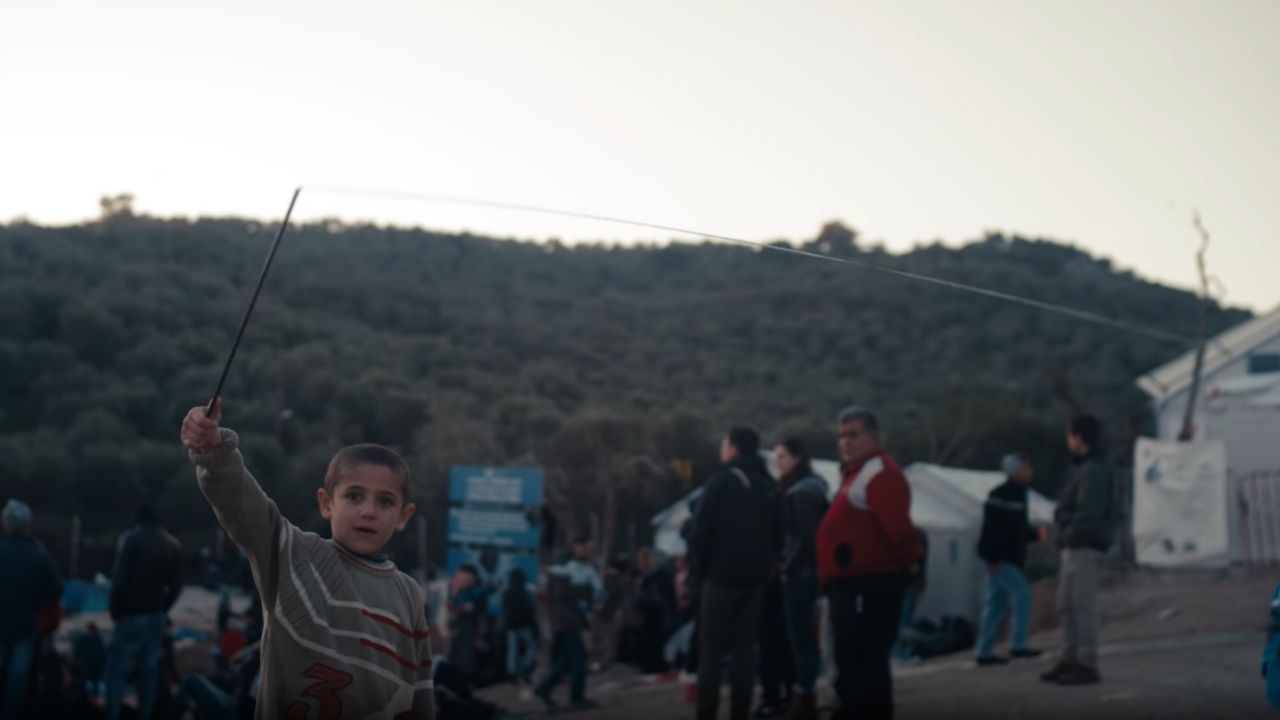
Children play on the edges of refugee camps as elders look on. Image Source: The Harrowing Personal Stories of Syrian Refugees, in Their Own Words, The Atlantic.
Still, this reality is far better than the hollow cities left behind by the refugees, leaving many hopeful for a brighter future. Most expect additional changes to their lives as they continue moving from one uncertain land to another, yet many are hopeful to find their place in the world that they had lost. One man describes his surprising gratitude for life in these challenging times:
“I feel this is a great experience. To finally see the ‘real’ world. By this, I mean the civilised world, a human world. Where human life is really valued. On the contrary, I am proud now to be a refugee.”
While a mother dreams for her children to live through the future she was robbed of:
“As long as there are human beings, there is hope. As long as there is a chance for our children to grow, there is hope.”
And a young woman asserts her conviction that a better world is waiting for her:
“This is why I’m going to Germany. To start a new life. To see the future that was waiting for me as a child.”
As the mayor of Lesvos, Spyros Gallinos, hears more and more of the relentlessly harsh realities faced by the resilient refugees at his doorstep — at Europe’s doorstep — he describes the inspiration he finds in working to help these unceasingly hopeful people that emerged from the rubble:
“We have seen people lose their lives a few metres from our coast. We have seen young children lose their mothers and mothers lose their children. And this, we cannot bear. For them, this island represents hope, it represents European civilisation. And we need to be worthy of their hope.”
From the limited perspective of those another world apart from this conflict, most people in these lands of hope know nothing of the world of rubble. They are themselves like the wanderers climbing atop mountains of rubble that cede away to shocking new reality. As these stories from Lesvos and Mosul and the many other lands of rubble spread, however, it is up to them to choose whether to help rebuild the ruins, or watch another people return to rubble.
- Madhav Malhotra
Wednesday, 24-Jun-2020 14:21:20 GMT+0000
